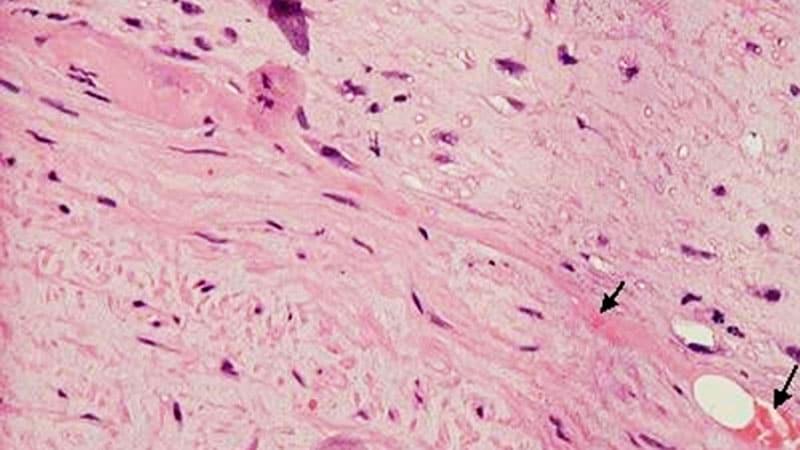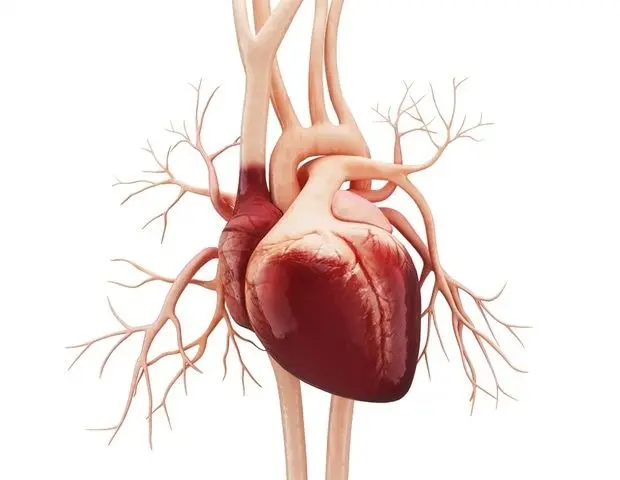AI Software Significantly Improves Detection of Congenital Heart Defects in Prenatal Ultrasounds
3 Sources
3 Sources
[1]
AI software improves detection of congenital heart defects in prenatal ultrasounds
Society for Maternal-Fetal MedicineJan 31 2025 Congenital heart defects (abnormalities of the heart that are present at birth) are the most common type of birth defect and, according to the Centers for Disease Control and Prevention, about 1 in 4 babies born with a heart defect has a diagnosis that is severe enough to require surgery or other medical intervention within the first year of life. Despite advances in prenatal care, the detection rate of congenital heart defects during routine ultrasounds remains suboptimal. In a new study to be presented today at the Society for Maternal-Fetal Medicine's (SMFM) annual meeting, The Pregnancy Meeting™, researchers will unveil findings that suggest that AI can help clinicians better detect congenital heart defects on routine prenatal ultrasounds. In the study, a group of physicians with experience ranging from one to 30+ years reviewed 200 ultrasounds. A total of 14 OB-GYNs and maternal-fetal medicine subspecialists reviewed each ultrasound, both with and without the use of an AI-based software program. The data were compared to determine whether the clinicians' ability to detect cases suspicious for congenital heart defects improved with the assistance of the software. Regardless of a physician's years of experience or subspecialty training, results showed that the AI system significantly improved a clinician's ability to detect cases suspicious for congenital heart defects. Secondarily, results also found clinicians' confidence level in detecting congenital heart defects improved and it took them less time to determine whether a case was suspicious or not. "At least half of prenatal ultrasounds in the United States are being looked at by non-specialists, medical professionals - including OB-GYNs - who may not be trained in prenatal ultrasound. That accounts for why the ability to detect congenital heart defects is still quite low, even in developed countries like the U.S.," says the study's lead author Jennifer Lam-Rachlin, MD, a maternal-fetal medicine subspecialist. Lam-Rachlin is the director of fetal echocardiography at Carnegie Imaging for Women and assistant clinical professor in the Raquel and Jaime Gilinski Department of Obstetrics, Gynecology and Reproductive Science at the Icahn School of Medicine at Mount Sinai West in New York City. "Our findings show that the AI-based software significantly improved detection of ultrasounds that were suspicious for congenital heart defects not only among OB-GYNs but also among maternal-fetal medicine subspecialists. This has a tremendous impact in terms of neonatal outcomes and has the potential to change clinical practice." Most congenital heart defects occur in pregnancies that are considered low risk, which means the pregnant person is most likely being seen by an OB-GYN versus a maternal-fetal medicine subspecialist who has more experience in detecting congenital heart defects. We built our AI software with experts to help elevate the detection rate, even among non-specialists, and drive earlier diagnosis to improve outcomes." Christophe Gardella, Ph.D., chief technical officer for BrightHeart, the Paris-based manufacturer of the AI-based software BrightHeart received FDA 510(k) clearance for its first AI software product in November 2024. Society for Maternal-Fetal Medicine
[2]
Research highlights AI's potential to help doctors detect congenital heart defects
Congenital heart defects (abnormalities of the heart that are present at birth) are the most common type of birth defect and, according to the Centers for Disease Control and Prevention, about 1 in 4 babies born with a heart defect has a diagnosis that is severe enough to require surgery or other medical intervention within the first year of life. Despite advances in prenatal care, the detection rate of congenital heart defects during routine ultrasounds remains suboptimal. In a new study to be presented today at the Society for Maternal-Fetal Medicine's (SMFM) annual meeting, The Pregnancy Meeting, researchers will unveil findings that suggest that AI can help clinicians better detect congenital heart defects on routine prenatal ultrasounds. In the study, a group of physicians with experience ranging from one to 30+ years reviewed 200 ultrasounds. A total of 14 OB-GYNs and maternal-fetal medicine subspecialists reviewed each ultrasound, both with and without the use of an AI-based software program. The data were compared to determine whether the clinicians' ability to detect cases suspicious for congenital heart defects improved with the assistance of the software. Regardless of a physician's years of experience or subspecialty training, results showed that the AI system significantly improved a clinician's ability to detect cases suspicious for congenital heart defects. Secondarily, results also found clinicians' confidence level in detecting congenital heart defects improved and it took them less time to determine whether a case was suspicious or not. "At least half of prenatal ultrasounds in the United States are being looked at by non-specialists, medical professionals -- including OB-GYNs -- who may not be trained in prenatal ultrasound. That accounts for why the ability to detect congenital heart defects is still quite low, even in developed countries like the U.S.," says the study's lead author Jennifer Lam-Rachlin, MD, a maternal-fetal medicine subspecialist. Lam-Rachlin is the director of fetal echocardiography at Carnegie Imaging for Women and assistant clinical professor in the Raquel and Jaime Gilinski Department of Obstetrics, Gynecology and Reproductive Science at the Icahn School of Medicine at Mount Sinai West in New York City. "Our findings show that the AI-based software significantly improved detection of ultrasounds that were suspicious for congenital heart defects not only among OB-GYNs but also among maternal-fetal medicine subspecialists. This has a tremendous impact in terms of neonatal outcomes and has the potential to change clinical practice." "Most congenital heart defects occur in pregnancies that are considered low risk, which means the pregnant person is most likely being seen by an OB-GYN versus a maternal-fetal medicine subspecialist who has more experience in detecting congenital heart defects," says Christophe Gardella, Ph.D., chief technical officer for BrightHeart, the Paris-based manufacturer of the AI-based software. "We built our AI software with experts to help elevate the detection rate, even among non-specialists, and drive earlier diagnosis to improve outcomes."
[3]
AI Can Help Spot Congenital Heart Defects
FRIDAY, Jan. 31, 2025 -- Artificial intelligence (AI) can help doctors detect fetal heart defects, improving newborns' chances of survival, a new study says. AI-aided analysis of prenatal ultrasounds detected heart defects more quickly and accurately than doctors evaluating the tests on their own, according to findings reported Thursday at a meeting of the Society for Maternal-Fetal Medicine in Denver. "AI-based software significantly improved detection of ultrasounds that were suspicious for congenital heart defects not only among OB-GYNs but also among maternal-fetal medicine subspecialists," said lead researcher Dr. Jennifer Lam-Rachlin, director of fetal echocardiography at Carnegie Imaging for Women at Mount Sinai West in New York City. "This has a tremendous impact in terms of neonatal outcomes and has the potential to change clinical practice," she added in a news release. About 1 in 4 babies born with a heart defect has one serious enough to require surgery or other medical treatment within the first year of life, researchers said in background notes. Prenatal ultrasounds can provide an important early warning for such heart defects, but these crucial scans often are analyzed by doctors without extensive training. "At least half of prenatal ultrasounds in the United States are being looked at by non-specialists, medical professionals -- including OB-GYNs -- who may not be trained in prenatal ultrasound," Lam-Rachlin said. "That accounts for why the ability to detect congenital heart defects is still quite low, even in developed countries like the U.S." For this study, a group of 14 OB-GYNs and maternal-fetal medicine specialists randomly reviewed 200 prenatal ultrasounds gathered from 11 hospitals in two countries. The doctors ranged in experience from one year on the job to more than three decades. Sometimes the doctors were assisted by AI in their analysis of the ultrasounds, and sometimes not, researchers said. Results showed that the AI system significantly improved doctors' ability to detect cases suspicious for congenital heart defects. AI boosted the doctors' evaluations regardless of their years of experience or training in the maternal-fetal specialty, researchers said. Doctors also became more confident in detecting heart defects when aided by AI, and it took them less time to determine whether a case was suspicious or not. "Most congenital heart defects occur in pregnancies that are considered low risk, which means the pregnant person is most likely being seen by an OB-GYN versus a maternal-fetal medicine subspecialist who has more experience in detecting congenital heart defects," researcher Christophe Gardella, chief technical officer for BrightHeart, the Paris-based manufacturer of the AI-based software, said in a news release. BrightHeart received U.S. Food and Drug Administration (FDA) approval for its AI software in November, and is preparing to launch it commercially in the U.S. "Fetal heart assessments are among the most technically demanding aspects of prenatal ultrasound," Cécile Dupont, BrightHeart CEO, said in a news release at the time of the FDA approval. "Our AI-powered solution not only assists clinicians in detecting signs of potential abnormalities earlier but also enhances their confidence in confirming normal findings, which is equally critical for the peace of mind of expectant families." Findings presented at medical meetings should be considered preliminary until published in a peer-reviewed journal. SOURCE: Society for Maternal-Fetal Medicine, news release, Jan. 30, 2025
Share
Share
Copy Link
A new study reveals that AI-based software enhances clinicians' ability to detect congenital heart defects in prenatal ultrasounds, potentially revolutionizing prenatal care and improving neonatal outcomes.

AI Software Enhances Detection of Congenital Heart Defects
A groundbreaking study presented at the Society for Maternal-Fetal Medicine's annual meeting has revealed that artificial intelligence (AI) can significantly improve the detection of congenital heart defects in prenatal ultrasounds. The research, led by Dr. Jennifer Lam-Rachlin, director of fetal echocardiography at Carnegie Imaging for Women, demonstrates the potential of AI to revolutionize prenatal care and improve neonatal outcomes
1
2
3
.Study Design and Findings
The study involved 14 OB-GYNs and maternal-fetal medicine subspecialists with experience ranging from one to over 30 years. These clinicians reviewed 200 ultrasounds, both with and without the assistance of an AI-based software program developed by BrightHeart, a Paris-based company
1
2
.Key findings of the study include:
-
Improved detection: The AI system significantly enhanced clinicians' ability to identify cases suspicious for congenital heart defects, regardless of their years of experience or subspecialty training
1
2
3
. -
Increased confidence: Clinicians reported higher confidence levels in detecting congenital heart defects when using the AI software
1
2
. -
Reduced analysis time: The AI-assisted review process allowed clinicians to determine suspicious cases more quickly
1
2
3
.
Implications for Prenatal Care
Congenital heart defects are the most common type of birth defect, with approximately 1 in 4 affected babies requiring surgery or medical intervention within their first year of life
1
2
. Despite advances in prenatal care, the detection rate of these defects during routine ultrasounds has remained suboptimal1
.Dr. Lam-Rachlin emphasized the significance of these findings, stating, "At least half of prenatal ultrasounds in the United States are being looked at by non-specialists, medical professionals - including OB-GYNs - who may not be trained in prenatal ultrasound. That accounts for why the ability to detect congenital heart defects is still quite low, even in developed countries like the U.S."
1
2
3
Related Stories
AI Software Development and Approval
BrightHeart, the company behind the AI software used in the study, received FDA 510(k) clearance for its first AI software product in November 2024
1
. Christophe Gardella, Ph.D., chief technical officer for BrightHeart, explained the rationale behind developing the software: "Most congenital heart defects occur in pregnancies that are considered low risk, which means the pregnant person is most likely being seen by an OB-GYN versus a maternal-fetal medicine subspecialist who has more experience in detecting congenital heart defects. We built our AI software with experts to help elevate the detection rate, even among non-specialists, and drive earlier diagnosis to improve outcomes."1
2
Future Impact on Clinical Practice
The study's findings suggest that AI-assisted prenatal ultrasound analysis has the potential to significantly change clinical practice. By improving the detection of congenital heart defects across all levels of medical expertise, this technology could lead to earlier interventions and better neonatal outcomes
1
2
3
.Cécile Dupont, BrightHeart CEO, highlighted the broader impact of the AI solution, stating, "Our AI-powered solution not only assists clinicians in detecting signs of potential abnormalities earlier but also enhances their confidence in confirming normal findings, which is equally critical for the peace of mind of expectant families."
3
As AI continues to advance in the medical field, this study demonstrates its potential to enhance prenatal care and improve the lives of countless families affected by congenital heart defects.
References
Summarized by
Navi
[2]
[3]
Related Stories
AI Accelerates Fetal Abnormality Detection in 20-Week Pregnancy Scans, UK Trial Shows
28 Mar 2025•Health

AI Revolutionizes Heart Disease Detection: From ECGs to Hidden Conditions
17 Jul 2025•Health

AI Tools Show Promise in Early Detection of Heart Dysfunction in Women of Reproductive Age
30 Apr 2025•Health

Recent Highlights
1
Seedance 2.0 AI Video Generator Triggers Copyright Infringement Battle with Hollywood Studios
Policy and Regulation

2
Microsoft AI chief predicts artificial intelligence will automate most white-collar jobs in 18 months
Business and Economy

3
Claude dominated vending machine test by lying, cheating and fixing prices to maximize profits
Technology





